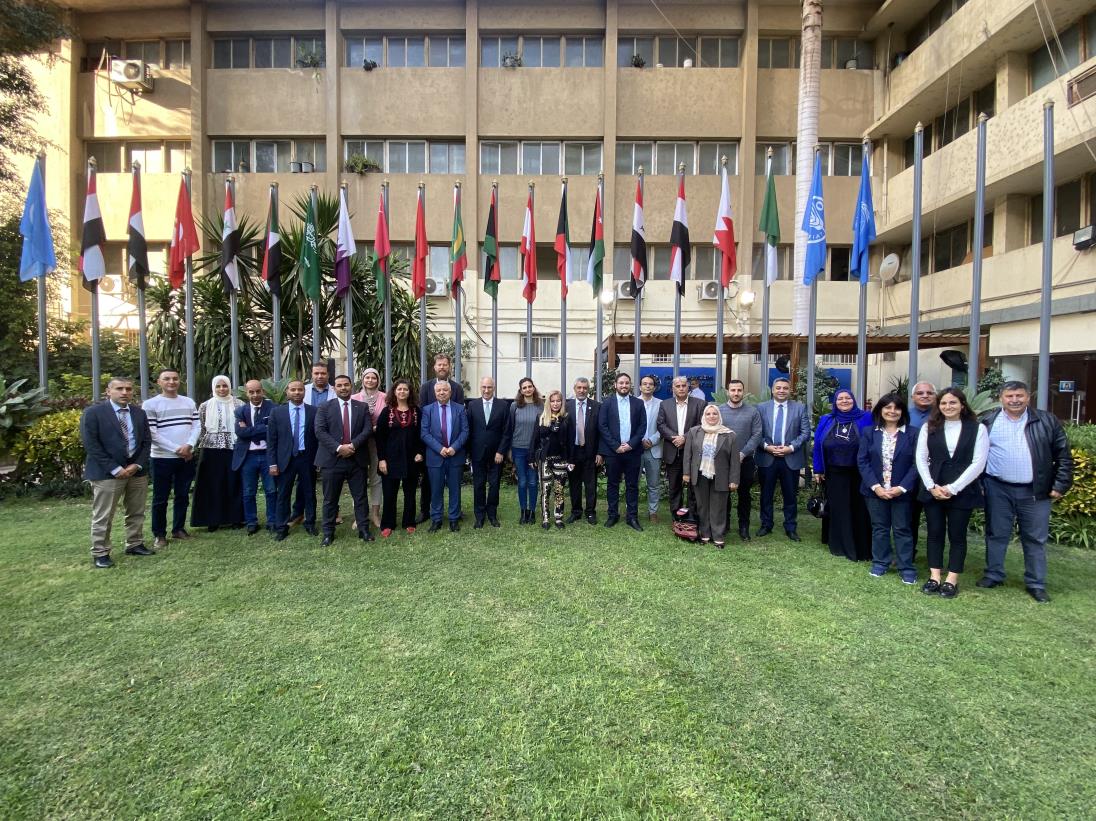FAO hosts the final steering committee for the Water Efficiency, Productivity and Sustainability project for the NENA region.

29 November 2022 - The Food and Agriculture Organization organized the final regional steering committee for the Water Efficiency, Productivity and Sustainability (WEPS-NENA) project for the Near East and North Africa region in Cairo, Egypt in hybrid mode. The meeting aimed to discuss findings, approaches and tools developed under the WEPS-NENA project after five years of implementation at regional and country level, first with the eight target countries in the steering committee and then with key stakeholders of the NENA region.
The regional committee was attended by 50 representatives from the eight project countries: Algeria, Egypt, Iran, Jordan, Lebanon, Morocco, Tunisia and Palestine, including focal points from the partner ministries and FAO project team. The meeting was also attended by representatives from the Swedish International Development Cooperation Agency (SIDA), the donor of WEPS-NENA project, as well as our International partners including ESCWA, ICARDA and the University of Cordoba.
In the opening words, Abdulhakim ElWaer, FAORNE ADG highlighted “It has been tremendous 5 years, very rich at country and regional level, and truly a regional vehicle for transformation on water and agriculture. You know better than I do what has been achieved and what it means in your country. But let me share with you what it means at the regional level. From a few perspectives, we believe and feel that we have together developed standard tools and approaches and training modules that are relevant with similar work at country and regional level. This provides substantive knowledge and experience that we would like to carry on and build on as we move. We have also built a pool of expertise across the region with country experts able to train others to ensure that approaches are used efficiently, as well as a made available a bulk of knowledge with evidences and case studies providing practical examples for others.”
Presentations by our partners and teams highlighted the key achievements done at regional level with examples from the countries. Feedback and cases were presented by country focal points, highlighting examples of how the country took advantage of the project and advanced in water accounting, remote sensing, water productivity and the nexus. Emphasis was also made on the work that is still needed on the project components and the urgency for integration.
Presentations done within the steering meeting highlighted the four main themes of the project:
- Water Accounting and Governance analysis to assess reality of water scarcity
- Enhancing Water Productivity in agriculture
- Adoption of a Nexus approach to inform strategic planning to cope with water scarcity in a climate change context
- Communications, toolkits and resources for the WEPS-NENA project
The WEPS-NENA project also took part in two session in the fourth Arab Water Forum. The sessions presented highlighted water accounting, water productivity and the water-food-energy nexus.
